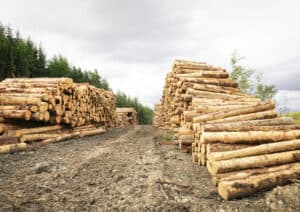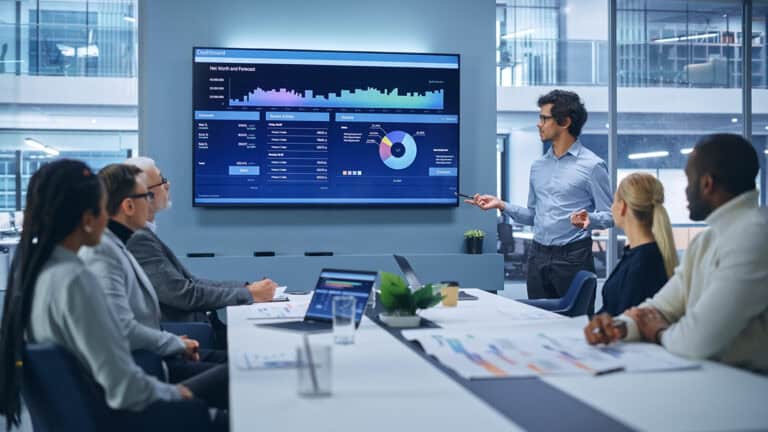
Organizations everywhere are facing mounting pressure to meet ESG (Environmental, Social, and Governance) regulations as many governments implement more laws to help combat environmental and social issues. For instance, the EU’s Corporate Sustainability Reporting Directive (CSRD), and the Uyghur Forced Labor Prevention Act (UFLPA) are recent pivotal developments in this space. Moreover, upcoming EU regulations set to take effect later this year will compel many companies to ramp up their anti-deforestation efforts.
The EU’s new deforestation regulation (EUDR) applies to seven primary agricultural commodities: soy, beef, palm oil, wood, cocoa, coffee, rubber, and some products derived from these commodities, such as leather, chocolate, or furniture. Starting on December 30, 2024, the EUDR will prevent these goods from entering or leaving the EU if they’re a product of deforestation, forest degradation, or are in violation of local environmental or social laws.
While deforestation policies are not new, the EUDR acknowledges the role supply chains play in forest management and biodiversity conservation and represents an increasing focus on moving toward deforestation-free supply chains. In the following sections, we’ll walk through the scope of EUDR, its implications on global supply chains, and what you can do to start preparing now.
Key components of the EUDR measures

The expansion of agricultural production is the main driver of deforestation, accounting for 80 percent of forest loss and nearly 10 percent of annual human carbon emissions.
As the world’s second largest importer of goods linked to deforestation, the EU hopes to shrink its deforestation and carbon footprints and lead the way in the creation of deforestation-free supply chains. To accomplish this, the EUDR has placed three new responsibilities on companies importing the targeted goods. Beginning December 30, 2024, companies looking to import or export any of these products in the EU must:
- Be deforestation-free: It will be required for targeted goods to be traced back to where they were produced to verify that they are not a product of deforestation and must be kept separate from other products while being shipped to meet compliance standards. This applies to all imports and exports.
- Comply with local legislation: Companies that are producing or harvesting targeted goods must do so in accordance with the environmental and social law of the country of production. This includes land use rights, social conservation laws, and labor rights.
- Provide a due diligence statement (DDS): Companies must ensure each batch of targeted goods is covered by a DDS which proves compliance with the EUDR and shares the risk level of non-compliance from the country of origin.
How will supply chains be impacted by the EU deforestation regulations?
Successful supply chain traceability will be paramount for navigating EUDR compliance. Many companies doing business in or with the EU will need to provide comprehensive information about products, the country of production, and specific plots where goods were produced. Commodities that are not traceable or were produced from deforested land dating back to December 2020 will not be allowed on the EU market.
Checks from national authorities
Across Member States, EU authorities will review checks on product origin and complete a risk assessment at least once per year to ensure compliance with the EUDR. In principle, compliance checks can also happen without warning.
For products deemed a high risk of non-compliance, authorities may also enforce risk mitigation measures, such as gathering additional information or conducting independent studies and audits.
EUDR non-compliance penalties
Products that fail to comply will result in penalties, which could include fines proportionate to the environmental damage and value of the products; confiscation of the products and the revenue generated by them; or suspension from trading in EU markets.
Start preparing your supply chain now
Though EUDR doesn’t go into effect until later this year, companies will need a long runway to prepare. There are a few things you can do now to get ahead of the changes and make compliance processing easier down the road.
- Be educated. Because EUDR covers a wide range of goods, companies in many industries will be impacted. Additionally, enforcement start dates and due diligence requirements vary depending on the size of your company and whether you operate in a “high-risk” deforestation country. Take time to understand which products are covered by EUDR and when you’ll be affected. To help clarify EUDR requirements, the European Commission has published a list of frequently asked questions (FAQs).
- Collaboratively prepare your supply chain. Due to the nature of EUDR, companies will need to collect information from each supplier across the entire chain to verifiably prove that products—including inputs that go into final products—aren’t produced on deforested land. Start collaborating with upstream and downstream partners to ensure you get out in front of documentation requirements.
- Implement a centralized supply chain platform. Compliance with EUDR standards will require mountains of data from multiple tiers of the supply chain to prove due diligence. Implementing a supply chain software platform like e2open can help organizations centralize and harmonize data from various stakeholders, improve collaboration with all ecosystem partners, and significantly streamline due diligence and compliance efforts by automating workflows.
Build a future-proof due diligence process
Even if your organization won’t be impacted by EUDR, many experts believe deforestation-free supply chains will become the new norm. If you’re one of the 30 percent of companies around the globe that still hasn’t developed a deforestation policy for your supply chain, any investment you make in untangling your operations from deforestation practices will help you prepare for the future.
Reach out to us to learn more about how e2open can help your company improve traceability with your suppliers and ensure compliance across an expansive supply network.







